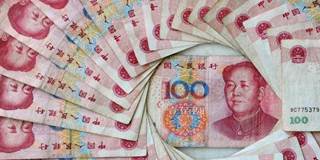China’s commitment to prop up its currency appears to be incompatible with its recent turn toward more accommodative monetary policies. The country will undoubtedly find it easier if it allows the renminbi to float sometime soon, rather than waiting until a full-fledged confidence crisis forces its hand.
CAMBRIDGE – As Chinese policymakers attempt to address what ails their country’s economy, they are pursuing two goals that will almost certainly turn out to be incompatible. Very seldom have central banks been able to maintain a fixed exchange rate over an extended period of time while providing liquidity to troubled banks and an ailing economy. Indeed, the task becomes especially difficult as the monetary stringency needed to prop up the currency intensifies strains on domestic banks and the real economy.
Those looking for a rough outline of the Chinese economy’s future would be wise to revisit what happened in Thailand in 1997, when the collapse of the baht precipitated the Asian financial crisis. Of course, China in 2016 is different in many ways from Thailand in 1997; but there are key similarities in their responses to ongoing capital outflows.
After a prolonged credit boom, commercial banks typically face a mounting volume of nonperforming loans. The natural monetary-policy response is to increase liquidity, lower interest rates, and, in many cases, provide direct assistance in the form of loans from the central bank. This was exactly what was done, for example, in advanced economies after the 2008 financial crisis.

CAMBRIDGE – As Chinese policymakers attempt to address what ails their country’s economy, they are pursuing two goals that will almost certainly turn out to be incompatible. Very seldom have central banks been able to maintain a fixed exchange rate over an extended period of time while providing liquidity to troubled banks and an ailing economy. Indeed, the task becomes especially difficult as the monetary stringency needed to prop up the currency intensifies strains on domestic banks and the real economy.
Those looking for a rough outline of the Chinese economy’s future would be wise to revisit what happened in Thailand in 1997, when the collapse of the baht precipitated the Asian financial crisis. Of course, China in 2016 is different in many ways from Thailand in 1997; but there are key similarities in their responses to ongoing capital outflows.
After a prolonged credit boom, commercial banks typically face a mounting volume of nonperforming loans. The natural monetary-policy response is to increase liquidity, lower interest rates, and, in many cases, provide direct assistance in the form of loans from the central bank. This was exactly what was done, for example, in advanced economies after the 2008 financial crisis.